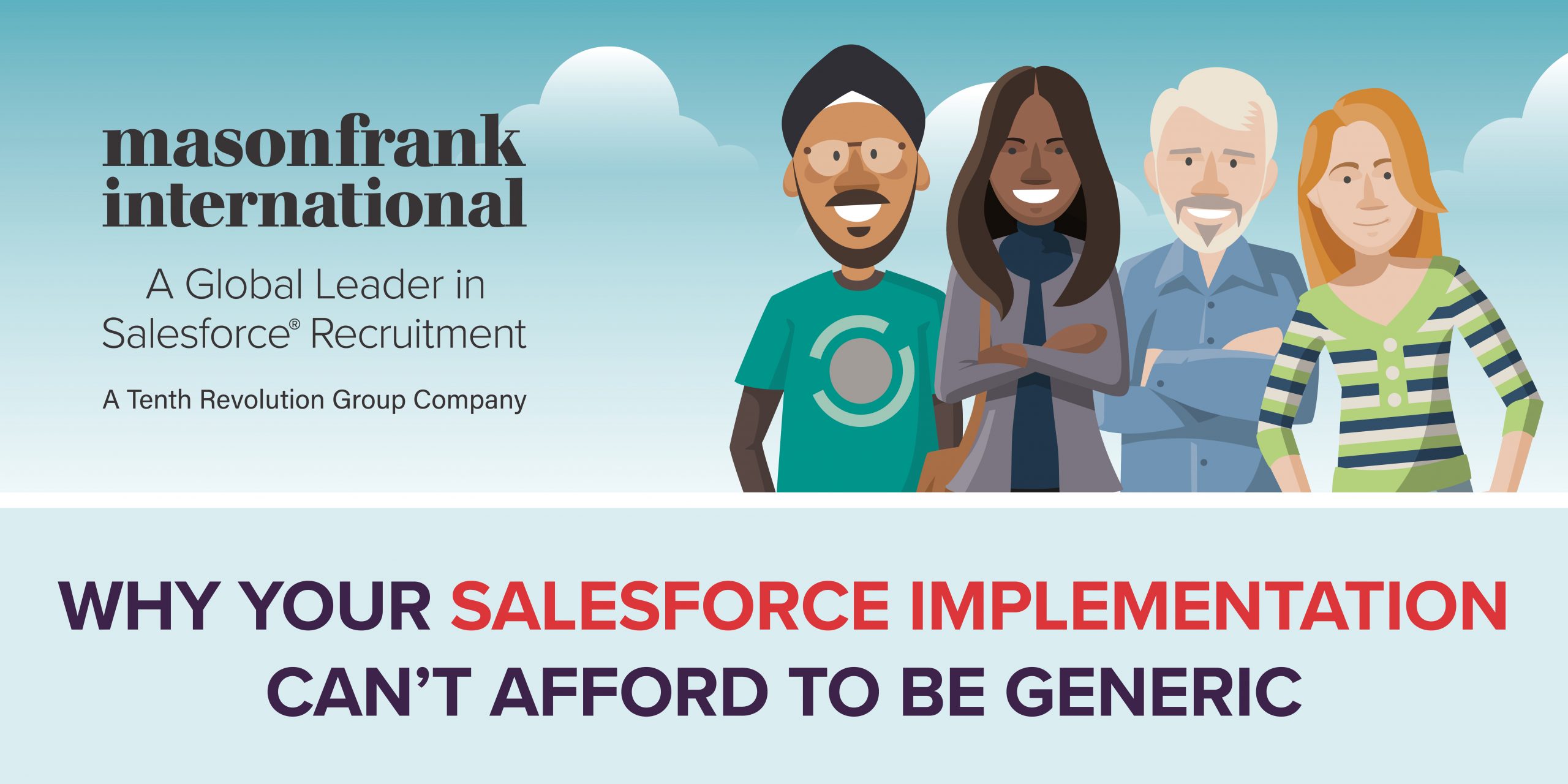
In the early days of cloud computing, many businesses made the same mistake: they treated CRM platforms like blank slates.
Companies across sectors like healthcare, manufacturing, financial services would start with the same vanilla Salesforce instance, then spend months (and millions) customizing it to fit their needs. Today, that approach is becoming obsolete.
The rise of industry-specific cloud solutions represents a fundamental change in how enterprises deploy Salesforce. Rather than building from scratch, organizations now adopt pre-configured platforms tailored to their sector’s regulations, workflows, and business models. And it’s become a strategic necessity.
Looking for Salesforce pros with deep industry cloud experience? Mason Frank can help you find sector specialists.
The cost of the “one-size-fits-none” approach
Picture a global bank that’s implementing a generic Salesforce setup. After go-live, its team spends 18 months adding compliance checks for financial regulations, customizing client onboarding for wealth management, and integrating with legacy trading systems. By the time they’re finished, competitors using Financial Services Cloud had already rolled out AI-driven risk assessment tools and automated Know Your Customer (KYC) workflows—features built natively into the industry edition.
This pattern can be seen across sectors. Healthcare providers retrofitting HIPAA compliance into standard objects, manufacturers bolting on equipment maintenance tracking after the fact, and nonprofits recreating donor management features that already exist in Salesforce’s nonprofit solution. The end result is wasted resources, delayed ROI, and solutions that never quite fit.
How industry clouds change the game
Salesforce’s industry-specific solutions, like Health Cloud, Manufacturing Cloud, and Public Sector Solutions, aren’t just themed dashboards. They provide:
- Regulatory guardrails
Pre-built compliance frameworks for GDPR (retail), HIPAA (healthcare), or FINRA (financial services) mean a European telecom company can avoid potential fines by using Communications Cloud’s built-in GDPR consent tracking instead of building its own.
- Specialized data models
Patient journeys in healthcare, supply chain nodes in manufacturing, or donor cycles in nonprofits are just some of the industry-specific data features that help businesses thrive in their niches. For example, an auto manufacturer can reduce parts recall resolution time by using Manufacturing Cloud’s serialized inventory tracking—a feature absent in standard Salesforce.
- Sector-specific AI
AI infused with industry-specific knowledge and context is far better equipped to deliver great results, providing things like equipment failure predictions for industrial companies, care gap identification for healthcare providers, and donor retention scoring for nonprofits.
- Faster time-to-value
Adopting industry-tailored clouds means your business gets access to niche out-of-the-box features, reducing time spent on customization and helping you generate ROI much faster.
A midmarket bank, for instance, could deploy Financial Services Cloud in a fraction of the time it would take to build a custom solution, and still get immediate access to functionality like client wealth hierarchies, portfolio performance dashboards, and FINRA-compliant communication logging.
Want insight into how hiring managers are tackling skills gaps? Our Careers & Hiring Guide has the answers.
Implementing an Industry Cloud
For leaders evaluating industry clouds, three steps matter most:
- Assess your “undifferentiated heavy lifting”
Identify processes (like healthcare compliance or manufacturing warranty tracking) that consume resources but don’t provide a competitive advantage. These are prime candidates for standardization.
- Validate ecosystem alignment
Industry clouds work best when paired with compatible AppExchange solutions. A retailer using Consumer Goods Cloud should evaluate complementary POS and loyalty apps.
- Plan for configuration, not customization
The goal isn’t to eliminate all customization, but to start 80% of the way there. A public sector agency might add a few fields to Government Cloud’s grant management module rather than rebuilding it entirely.
In an era where vertical expertise matters more than ever, generic cloud solutions force businesses to waste energy reinventing wheels. Industry-specific platforms turn Salesforce from a toolkit into a strategic asset that understands the nuances of your sector from day one.
The question isn’t whether your company needs these specialized solutions. It’s how much time and money you’ll lose before adopting them.


